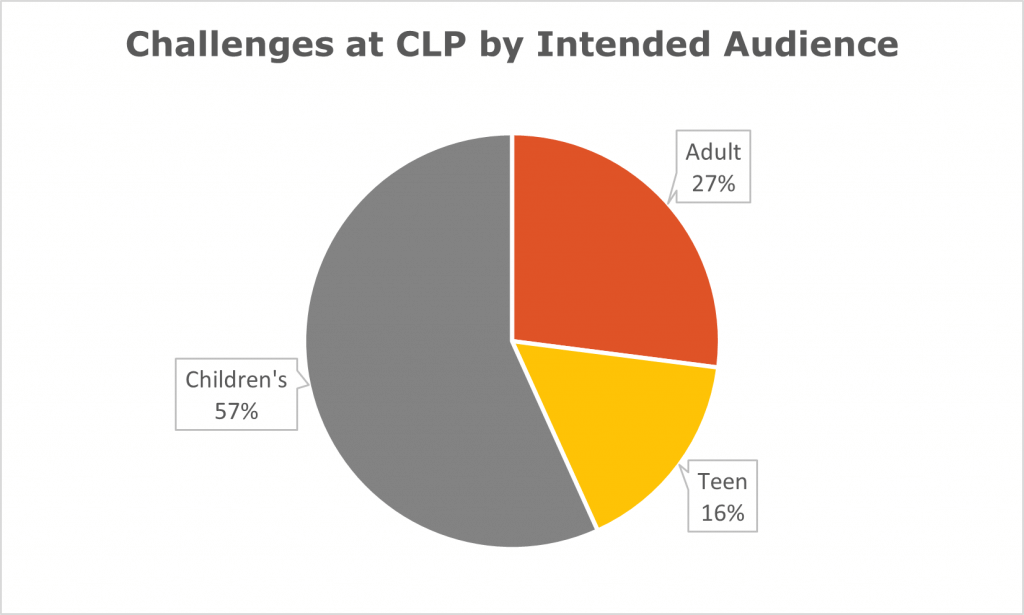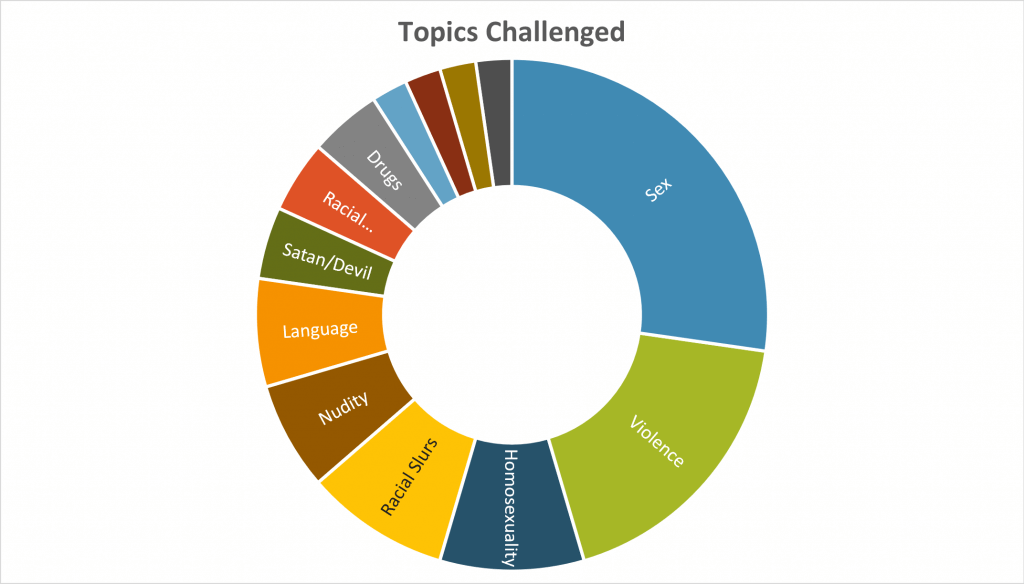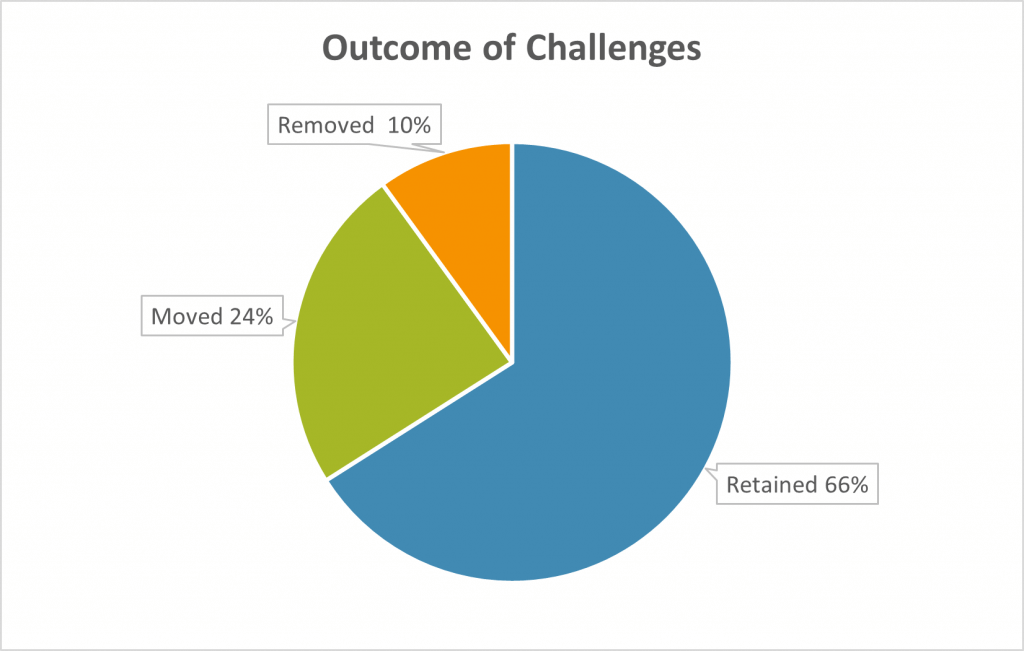Our previous Banned Books Week posts focused on intellectual freedom and the recent increase in coordinated challenges to library materials in school and public libraries. While Carnegie Library of Pittsburgh has not (yet) been the recipient of a coordinated effort, we have received requests to reconsider a number of books and other materials over the years. This happens through our Materials Reconsideration Request process, which we outlined in a post last year.
In some cases, individuals believed that an item belonged in a different section of the library. In others, the request was to remove a title entirely.
Since 1993, we have received a total of 37 Materials Reconsideration requests. The number of challenges has varied from year to year and in some years we have not received any at all.
In most cases, people are concerned about materials intended for children and teens. They worry that the content is in some way inappropriate or harmful.
The impulse to protect young people is a positive one. But limiting children’s and teens’ access to information and ideas is not the library’s role.
In fact, Carnegie Library of Pittsburgh’s (CLP) collection strives to reflect the diversity of the community we serve. And, as we often state when we respond to requests for reconsideration, “we are keenly aware of the possibility that not all of our materials will match the values of our many customers and families.”

Not surprisingly, some topics have been more prevalent than others. For many years, most concerns that were raised (64% of challenges from the early 1990s to 2006) related to sexual content.
We’ve also seen shifts over time. From 2007 to the present the number of challenges related to sex dropped to 25%. Meanwhile, challenges related to racist language and/or stereotypes are increasing. We had only one from 1993 – 2006 but received five between 2007 and the present, with most of those occurring in the past few years.

So, what were the outcomes of all of these reconsideration requests?
The majority of challenged items (66%) were retained in the collection for which they were originally selected. That’s because for the most part our selections matched our guidelines and goal of creating a diverse collection.
In some cases, a challenge revealed an error in placement on our part or even an error in selection. Some items were, in fact, moved from a collection serving one age group to another. And a few were removed from the collection. Items removed did not reflect our organization’s commitment to equity, diversity and inclusion or otherwise no longer met our collection development guidelines.

That’s why, although it may seem counterintuitive, we appreciate it when people take the time to ask us to reconsider a decision we have made. Even when we don’t agree that the requested action is the right move for us to make, we are glad to know that parents and other adults care so deeply about children’s media consumption.
Also, reconsideration requests give us the opportunity to engage with our users and share information about our policies and procedures. And connection is really what the library is all about—connecting people to materials, our staff, each other and our communities.
To read more about the process we use to respond to requests like these and why they are not unwelcome, click here and here. To read more about making positive connections, check out the next blog post in this series.

